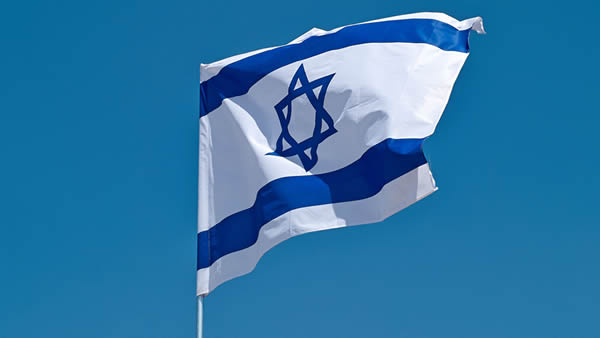
Israel on Sunday rejected international calls, including from its chief ally, the United States, for “unilateral recognition” of Palestinian statehood, saying any such agreement could only be reached through negotiations.
Prime Minister Benjamin Netanyahu brought what he called a “declaratory decision” on Palestinian statehood before his Cabinet, which unanimously approved it.
The statement declared that the Jewish state “categorically rejects international edicts on a permanent arrangement with the Palestinians.”
Efforts to achieve a two-state solution — an independent Palestinian state in the West Bank and Gaza on either side of Israel — have been stalled since 2014.
But with the Israeli-Hamas war in Gaza now in its fifth month, the U.S. and other countries have renewed calls for the creation of a Palestinian state to end the fighting. U.S. President Joe Biden has called for an even broader Middle East agreement that would encompass Saudi Arabia and other Arab states normalizing diplomatic relations with Israel.
In rejecting Palestinian statehood, Israel said in a statement that such recognition, coming after the shock October 7 Hamas attack on Israel “will grant a huge, unprecedented reward to terrorism and prevent any future peace accord.”
Netanyahu has vowed to continue fighting Hamas militants until it achieves “absolute victory.” The U.S. has tried, unsuccessfully so far, to broker a new cease-fire and the release of the 100 or so hostages still held by Hamas in Gaza.
Netanyahu has said that Hamas’ demands are “delusional” that Israel withdraw its troops from Gaza and leave the militants in control of the territory with the capability to rebuild its arsenal.
Linda Thomas-Greenfield, the U.S. ambassador to the United Nations, said in a statement Saturday that the U.S. would veto an Algerian plan likely to come before the U.N. Security Council this week calling for an immediate cease-fire.
She said the U.S. wants “a sustainable resolution” to the Gaza conflict which would bring an immediate and sustained period of calm to Gaza for at least six weeks, and from which “we could then take the time and the steps to build a more enduring peace.”
She said the plan the U.S. has been working on with input from Israel, Egypt, Qatar and others “represents the best opportunity to reunite all hostages with their families and enable a prolonged pause in fighting, that would allow for more lifesaving food, water, fuel, medicine, and other essentials to get into the hands of Palestinian civilians who desperately need it.”
She said the Algerian plan would not achieve the same results and “may run counter to them.” Thomas-Greenfield said if the Algerian plan were to come up for a vote, “it will not be adopted.”
Meanwhile, the fighting in Gaza rages on. Medics and witnesses said Israeli strikes across Gaza killed at least 18 people overnight and into Sunday. One airstrike in Rafah, near the Egyptian border in southern Gaza, killed a woman and three children, and another strike killed five men in Khan Younis.
The head of the World Health Organization said Nasser Hospital in Khan Younis, the main medical center serving southern Gaza, “is not functional anymore” after Israeli forces raided the facility in the southern city last week.
Tedros Adhanom Ghebreyesus, the head of the U.N. health agency, said a WHO team was not allowed to enter Nasser Hospital on Friday or Saturday “to assess the conditions of the patients and critical medical needs, despite reaching the hospital compound to deliver fuel alongside partners.”
There are still about 200 patients in the hospital, including 20 who need urgent referrals to other hospitals, he said on the X social media platform.
Israel says it arrested more than 100 suspected militants in the hospital, including 20 who it says — without providing evidence — participated in the October attack on Israel. The military says it is looking for the remains of hostages inside the facility and does not target doctors or patients.
The Gaza Health Ministry said 70 medical personnel and patients in hospital beds were among those arrested and taken away in trucks. Ashraf al-Qidra, a spokesperson for the ministry, said soldiers beat detainees and stripped them of their clothes. There was no immediate comment from the Israeli military on those allegations.
The war started with the Hamas attack that killed 1,200 people in Israel and the militants’ capture of about 240 hostages. The Hamas-controlled Gaza health ministry says Israel’s counteroffensive has now killed nearly 29,000 Palestinians, mostly women and children, and wounded nearly 69,000 more.
Source: voanews.com























